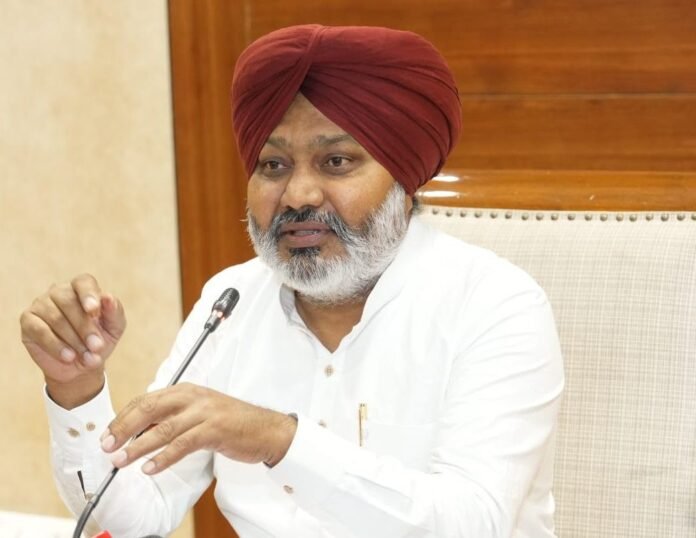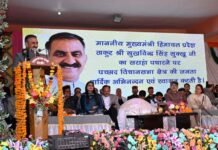In a decisive move aimed at revitalising Punjab’s economic framework, state Finance Minister Harpal Singh Cheema announced significant structural reforms to the Goods and Services Tax (GST) system during a policy briefing on July 4, 2025. The announcement, which comes amid rising concerns over Punjab’s dwindling industrial competitiveness and sluggish revenue growth, outlines a roadmap to reduce the inverted duty structure and enhance tax collection efficiency across sectors.
Addressing the media in Chandigarh, Cheema said the reforms were long overdue and that Punjab’s economic stability depended on creating a more balanced and transparent tax system. The core objective, he emphasised, is to address anomalies in the inverted duty structure that have made it difficult for manufacturers and service providers to claim input tax credit (ITC), thereby inflating production costs and discouraging investment.
“The current GST framework punishes manufacturers who face higher taxes on raw materials and lower taxes on final products. This inverted duty structure has long been a bottleneck in Punjab’s growth, especially for small and medium enterprises. Our reforms will make compliance easier and help bring industry back into the growth fold,” Cheema stated.
Among the key proposals is the simplification of GST rates for certain sectors, including textiles, pharmaceuticals, and food processing, which form the backbone of Punjab’s semi-urban industrial hubs. The state government has also proposed aligning tax slabs more closely with the value addition chain, allowing businesses to reclaim more of their input taxes and reduce the cascading tax burden.
Cheema added that the state has submitted its recommendations to the GST Council, urging the central government to approve the rationalisation of tax rates and establish a dedicated mechanism to resolve ITC-related grievances. The move is expected to significantly benefit micro, small, and medium enterprises (MSMEs), which have been vocal in their complaints about blocked working capital due to delayed refunds and excessive documentation.
The finance minister also hinted at digital reforms to plug revenue leakages. The state will soon launch a ‘GST Compliance Assistance Portal’ that will guide businesses through real-time filing procedures, track tax credits, and issue red flags for common errors or fraud-prone patterns. A special task force under the Excise and Taxation Department has been assigned to identify non-compliant traders and implement tech-driven audits.
Economic analysts have welcomed the proposal, calling it a positive step towards making Punjab a more industry-friendly destination. “This is an attempt to bring policy in line with ground realities. While GST has been a game-changer nationally, its implementation in states like Punjab has suffered due to lack of contextual customisation. What Cheema is proposing is essentially a state-led clean-up of those grey areas,” said Dr. Kamalpreet Sandhu, an economist with the Centre for Tax Studies.
However, challenges remain. Punjab has one of the highest debt-to-GSDP ratios among Indian states, and a slowdown in central compensation post the initial five-year GST rollout window has intensified fiscal stress. Critics from opposition parties argue that while reform proposals are promising, their success will depend on execution and Centre-State coordination. Former Finance Minister Manpreet Badal called for a transparent action plan with timelines and sector-specific impact assessments.
From a national perspective, Punjab’s pitch for reform resonates with concerns raised by other states. The 53rd GST Council meeting, held in June 2025, had already flagged the need to address the inverted duty structure in multiple sectors. Cheema’s proposals could therefore find broader support when the Council convenes next, especially from manufacturing-heavy states like Tamil Nadu and Maharashtra.
For Punjab, this is not just about revenue—it is about restoring industrial confidence and ensuring that taxation is not an impediment to entrepreneurship. As the state government prepares to roll out these reforms in phases, industry stakeholders are watching closely, hopeful that this time the promise of GST simplification will move beyond paperwork and become tangible policy.
#PunjabGSTReform #HarpalSinghCheema #InvertedDutyStructure #GSTCouncil #TaxReformIndia #PunjabEconomy #MSMEsupport #EaseOfDoingBusiness #PunjabFinanceNews #TaxRelief2025
This is an auto web-generated news web story.





